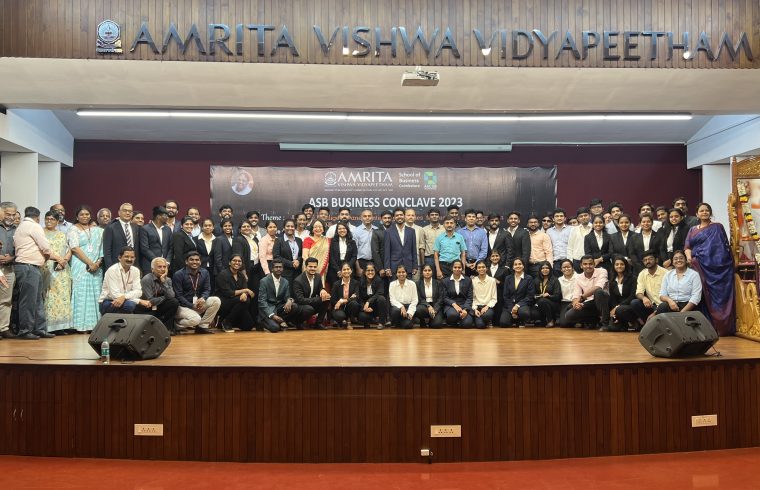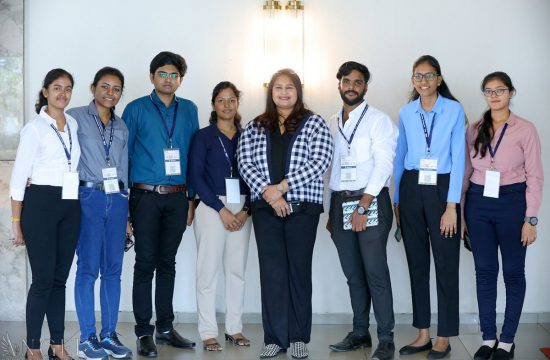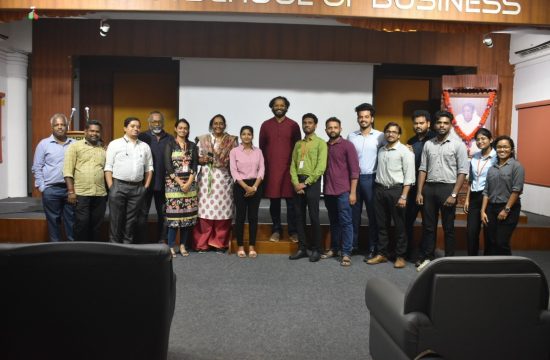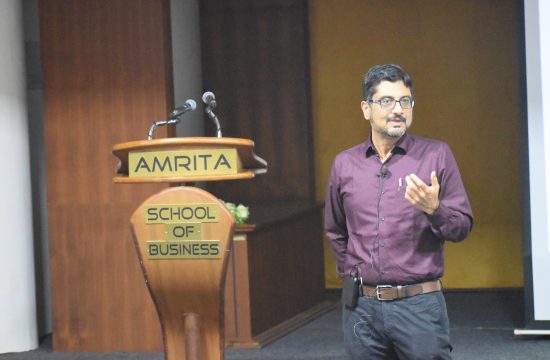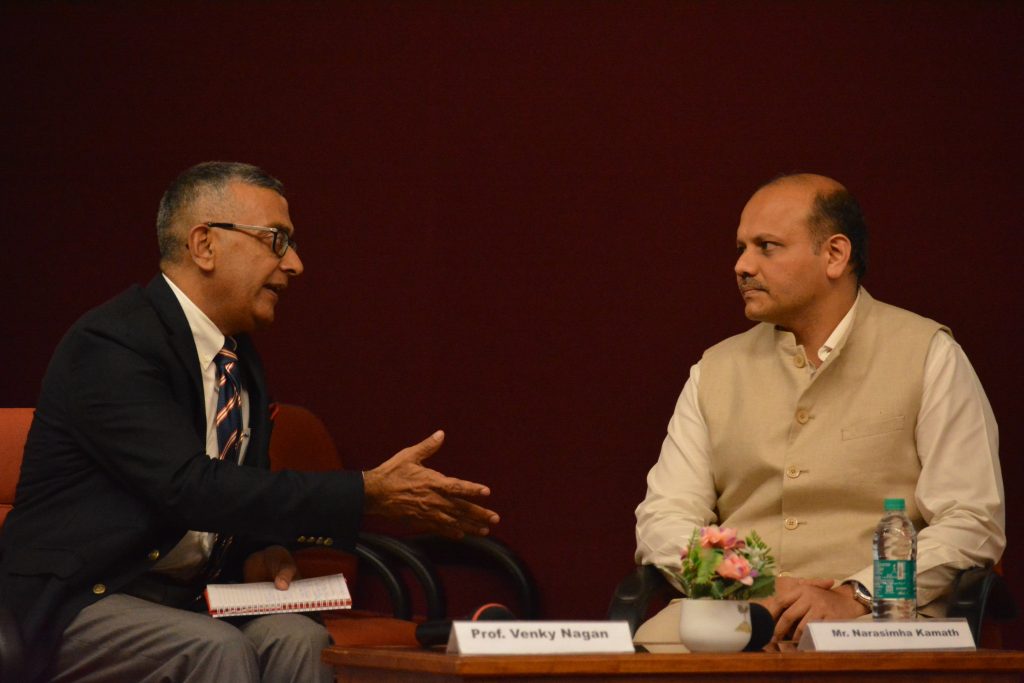
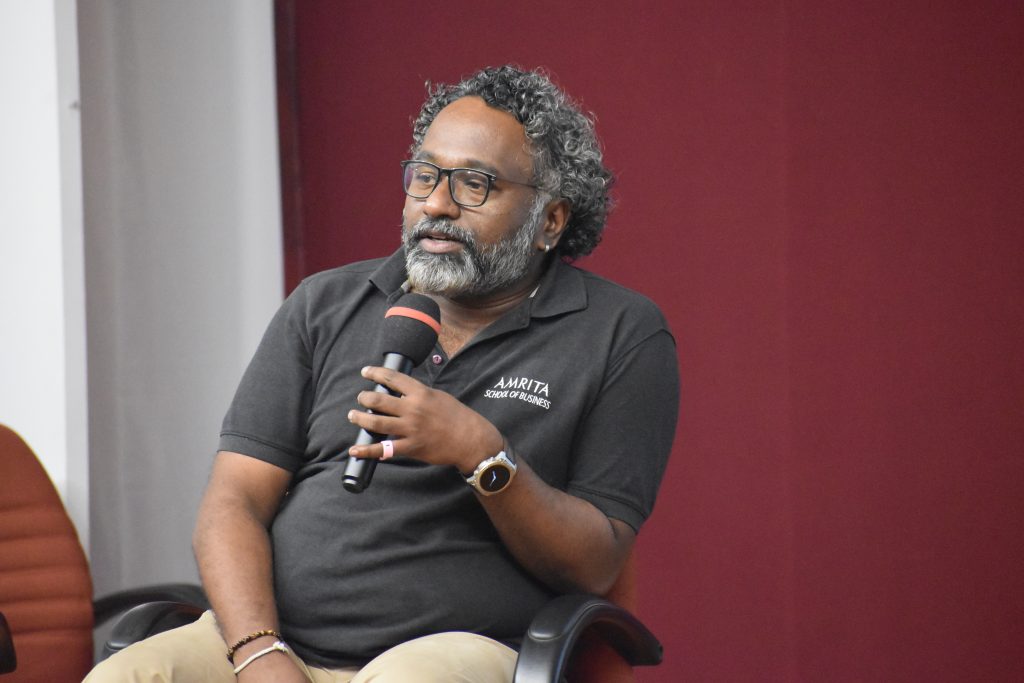
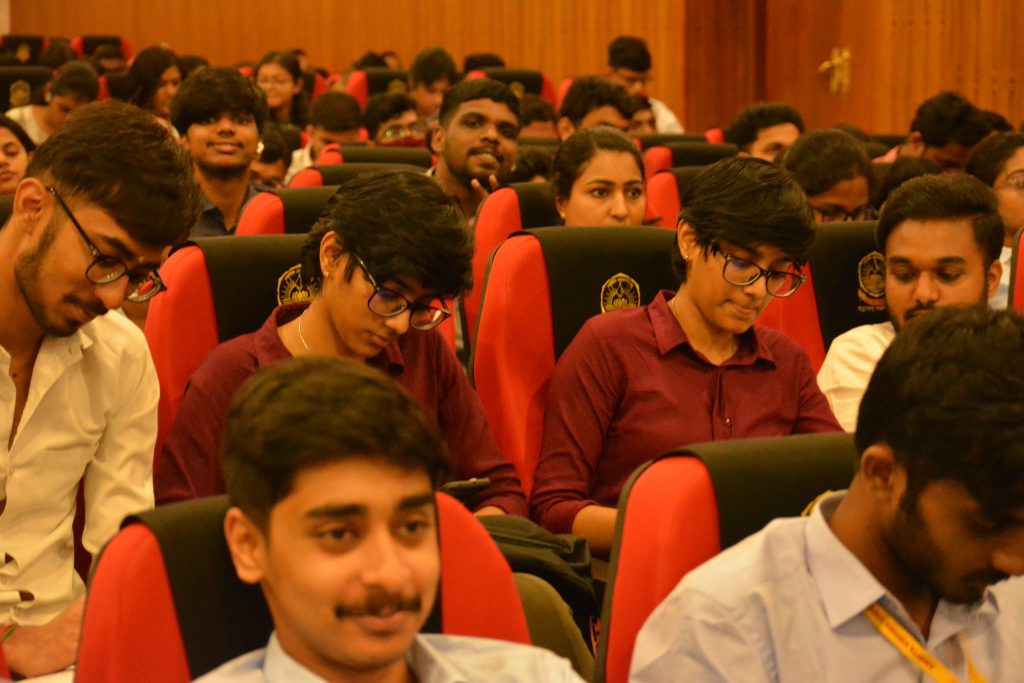






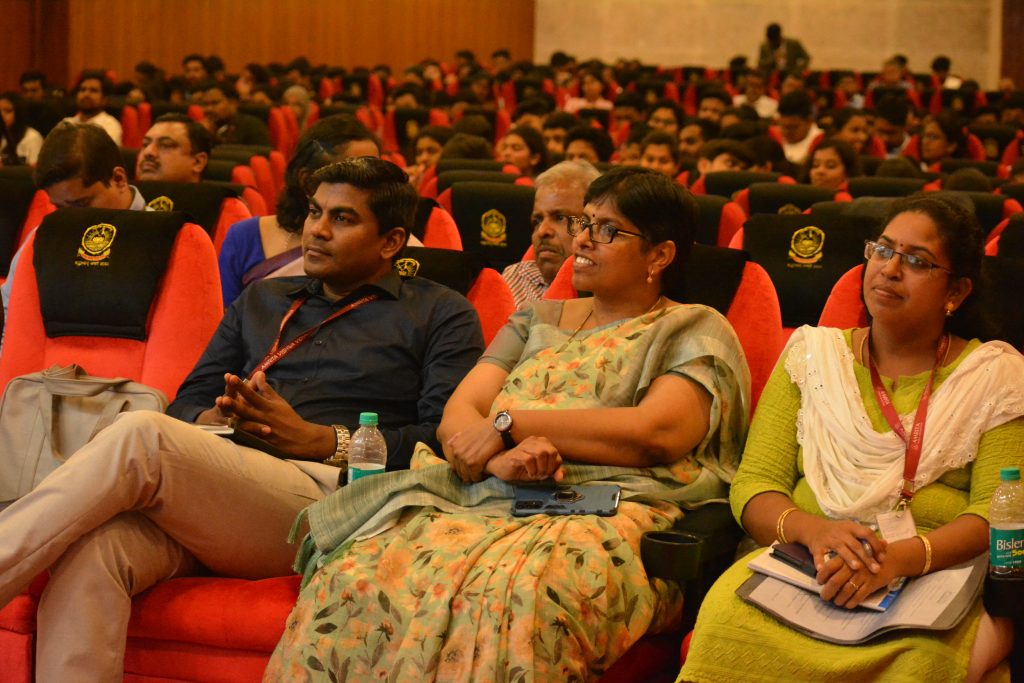
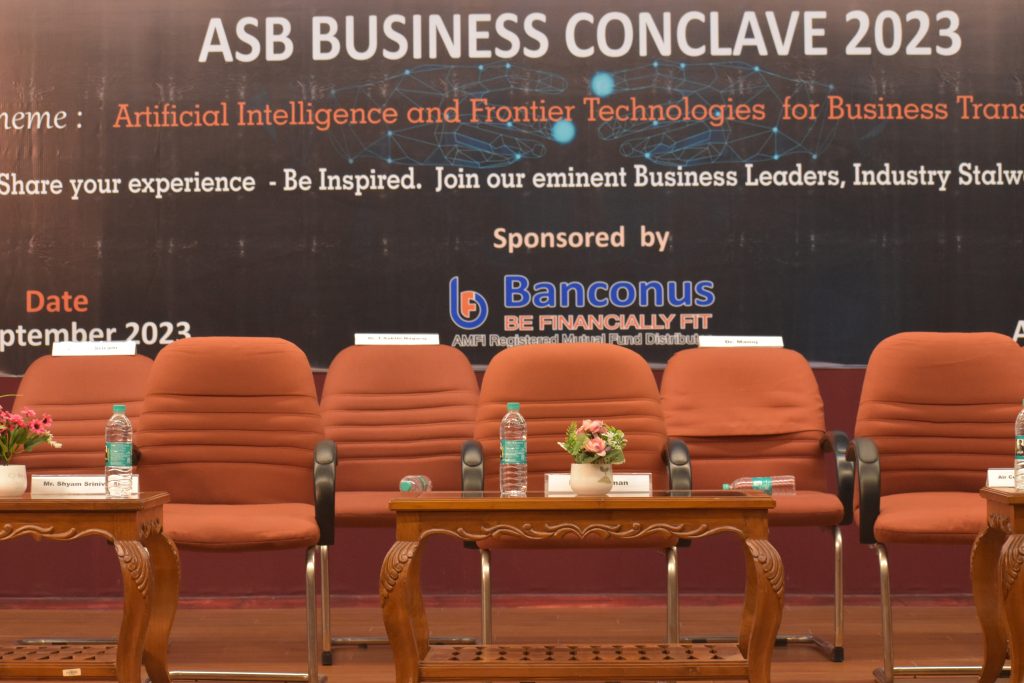
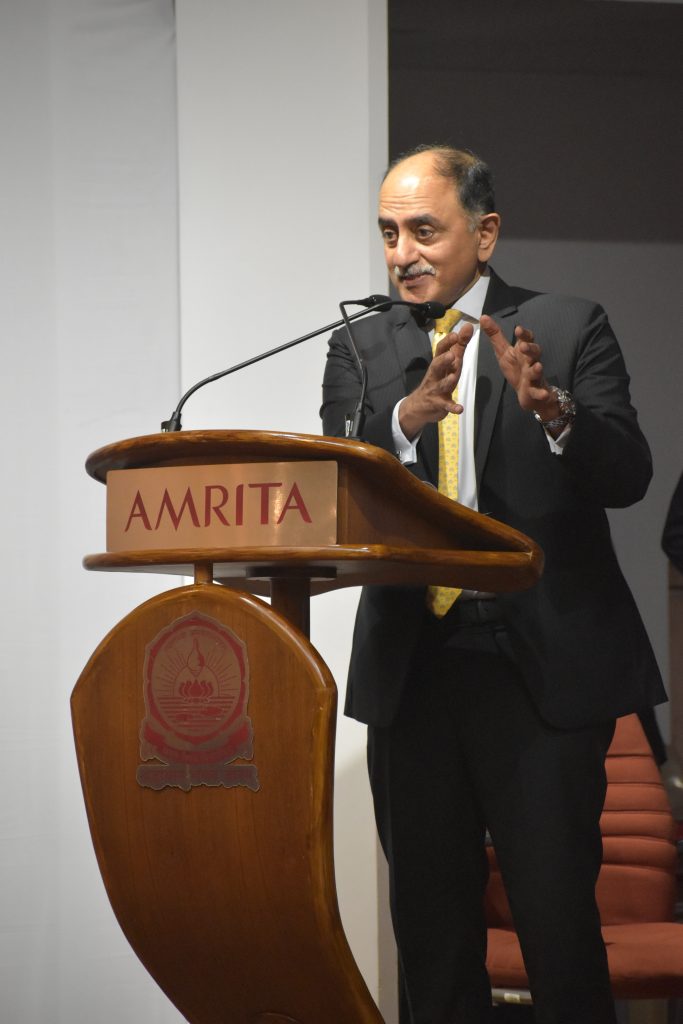
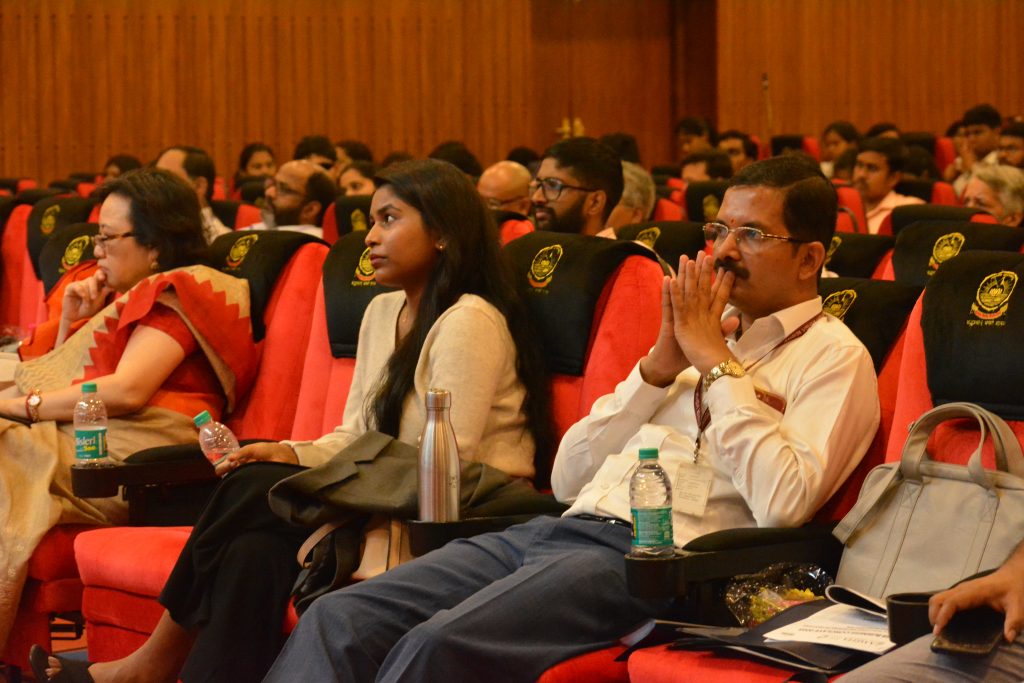
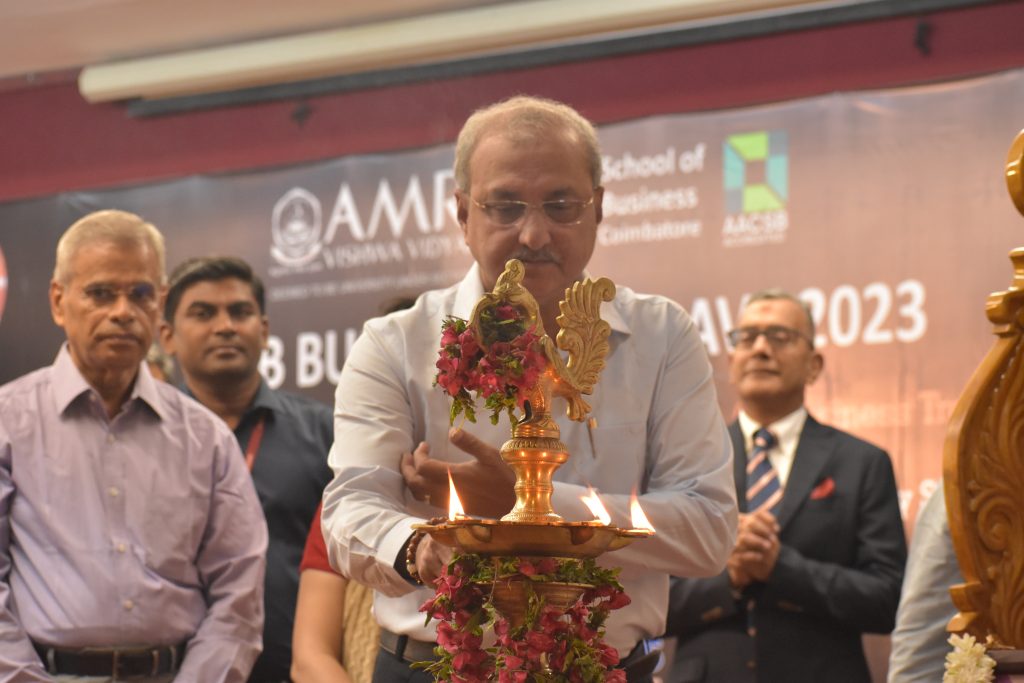
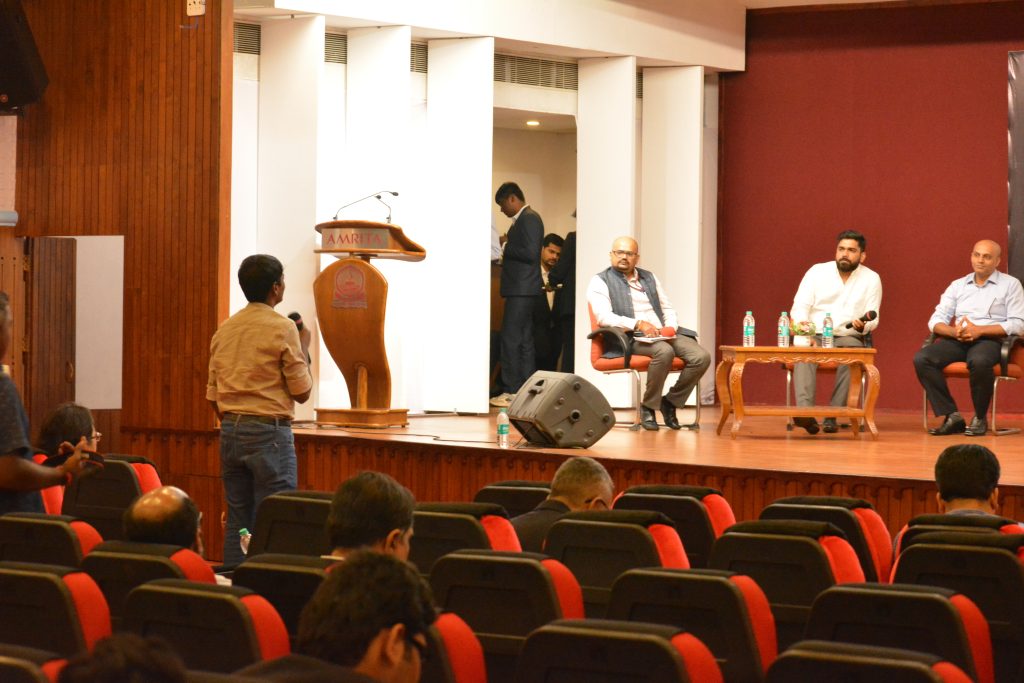
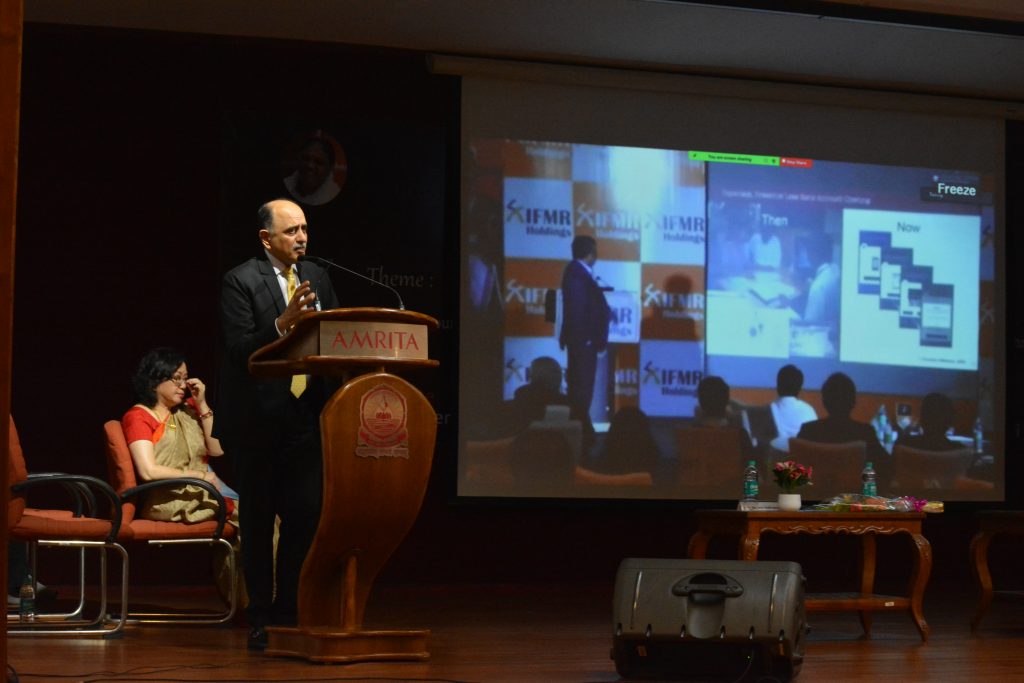
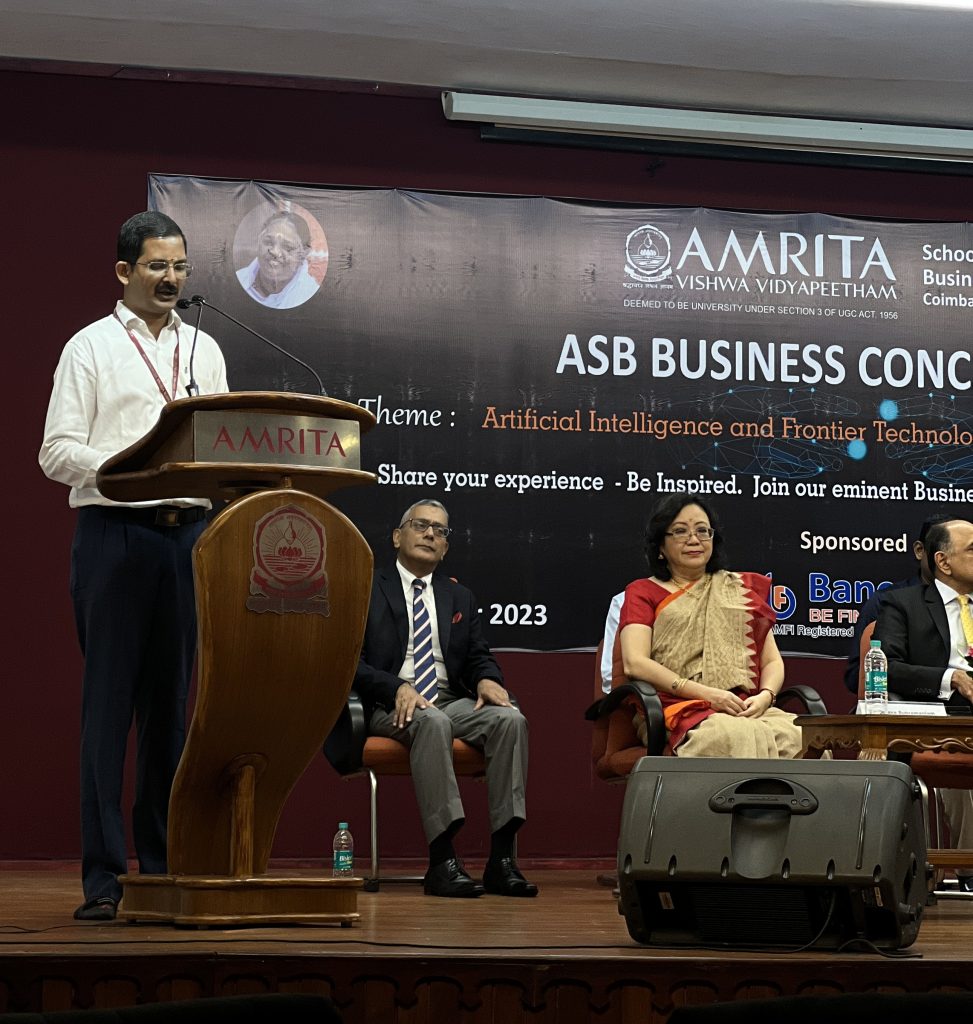
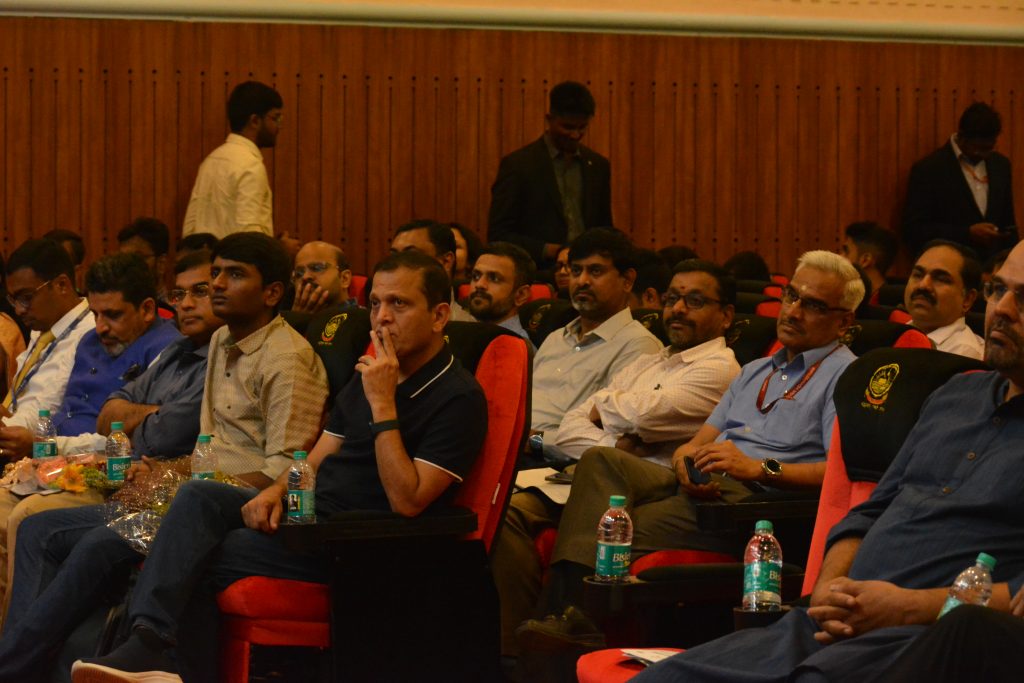

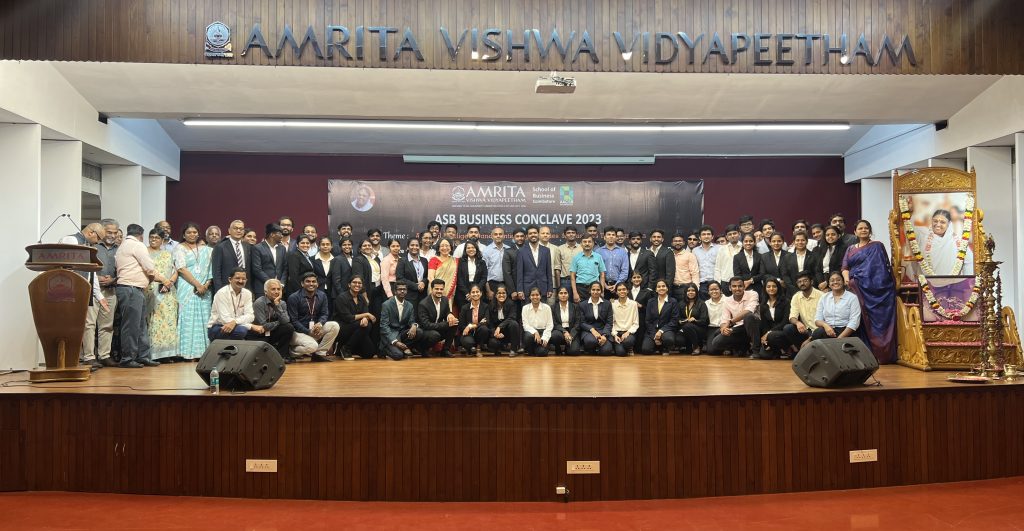
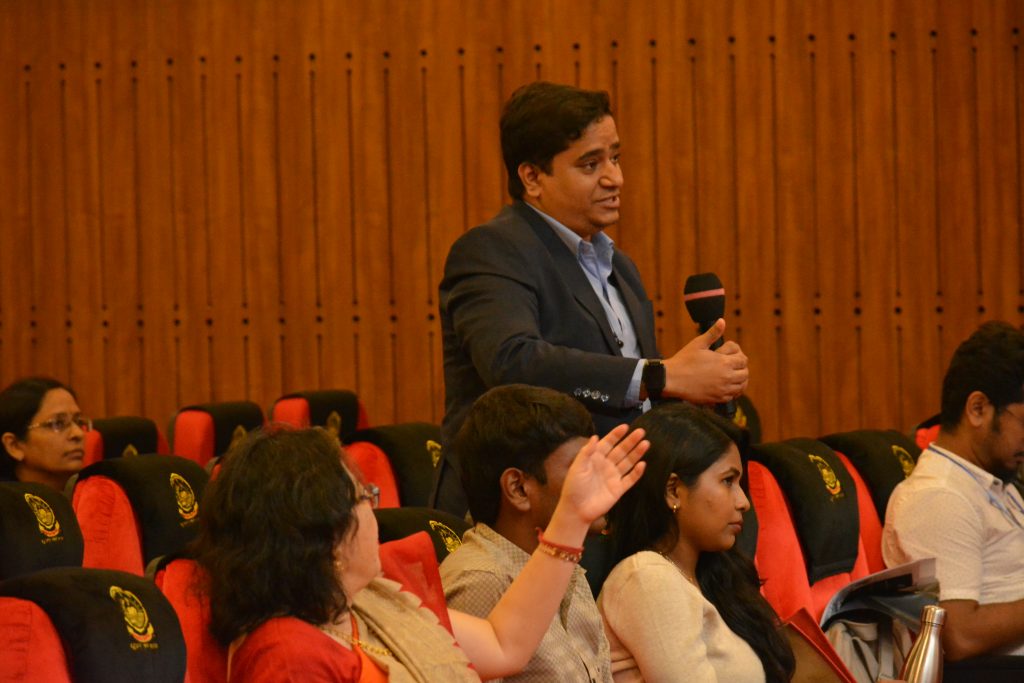
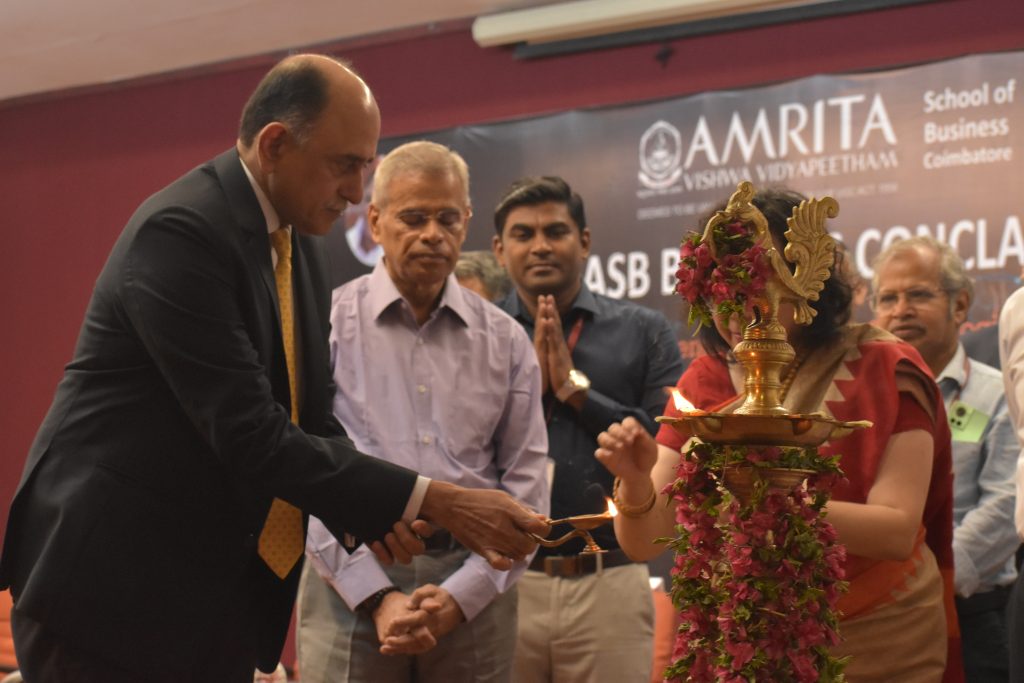
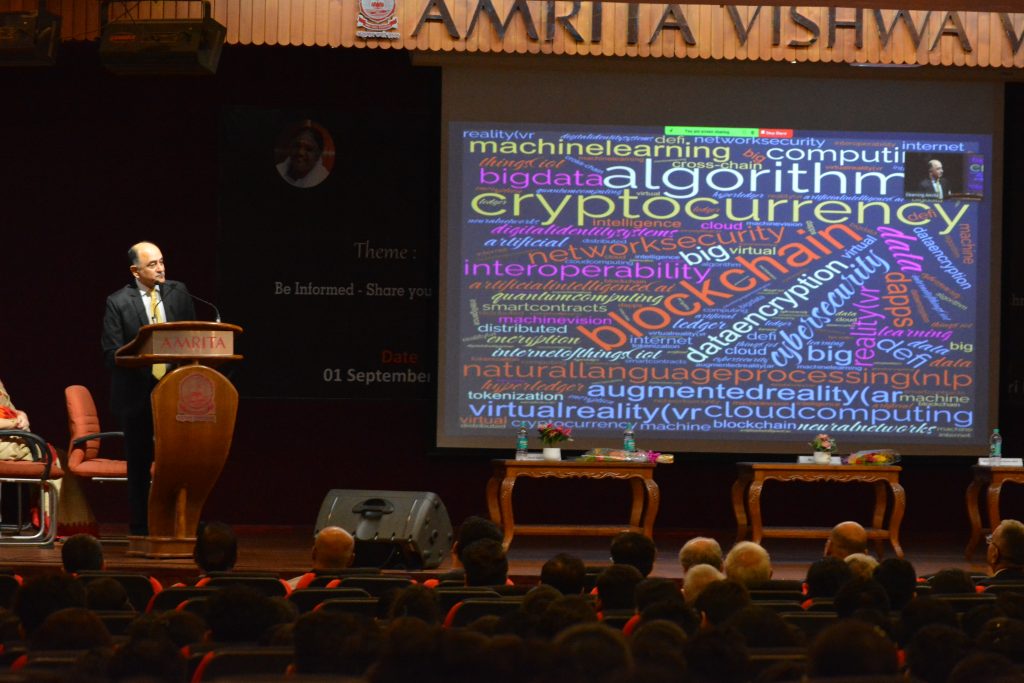

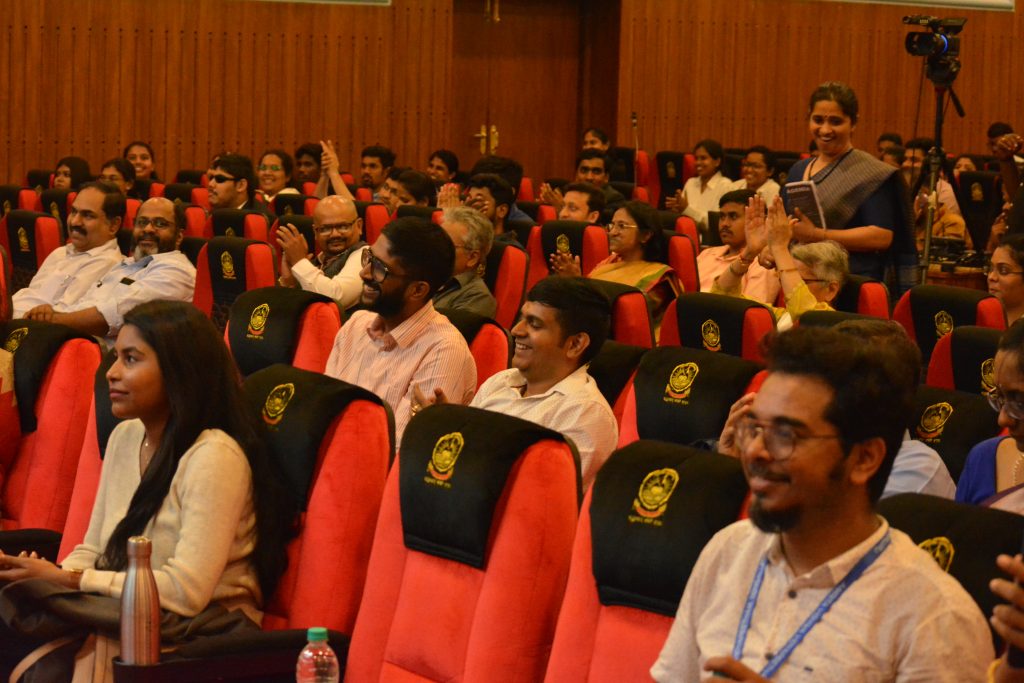
On September 1, 2023, Amrita School of Business hosted an enlightening business conclave on the theme “Artificial Intelligence and Frontier Technologies for Business Transformation”. This conclave brought together various industry experts, researchers, entrepreneurs, and students to explore the profound impact of artificial intelligence (AI) and emerging technologies on business and industries. The speakers at the conclave were:
- Samik Raychaudhuri is Head of Data Science and Infrastructure at Aquan India, a fintech startup building products in the data space for institutional investors.
- Hari Mukundan is the head of product management for cyber security and data protection at CapitalOne Bank.
- Skandan Sethuraman: Internal IT audit at Freddie Mac
- Kamini Shah, CFO, Birla Soft Limited
- Suresh Sethuramaswamy is on the Microsoft Industry Cloud team as a product developer for FSI-specific differential products and analytics products.
- Jayanth N. Kolla: Strategy Head, Big Tech Firm
- Gangadhar Kodandaram: Chief Revenue Officer, SKIT.ai
- Somasundaram B: Digital Transformation Head, ELGI Equipments Ltd.
- Dr. Krithik Vijayakumar, CEO of Futura Robotics
- Narasimha Kamath, Senior Vice President of Research and Development, O9 Solutions
- Aharsh: CMO, Accubits Technologies, Inc.
- Ganesh Subramanian: Founder and CEO, Stylumia
- Dr. Deepak Gupta, Professor at ASB
The session started with a discussion on the impact of AI in the finance industry. It mentioned several commonly used cases of AI in finance, such as contract management, employee personalization, accounts receivable and payable, and financial loan evaluation. It also highlighted the use of specific AI models like language models and vector databases in the finance domain. Additionally, it mentioned how AI is affecting financial metrics and portfolio management, as well as its role in cybersecurity.
The second session explained AI and ethics. The importance of transparent and ethical AI was the focus of this session. It recommended that strict vigilance is necessary in the AI era and emphasized the ethical handling of AI. The discussion in this session suggested drawing clear lines between different zones of AI usage and aligning AI with humans for better progress. It also mentioned the need for regulation in AI governance and the importance of trustworthiness in AI outputs. It highlighted the multi-model effect of large language models and how AI algorithms in the 2.0 era consumed less data. The paper mentioned chat-GPT as a significant development in AI.
The 3rd Session discussed the future of robotics and artificial intelligence (AI) in various industries. Dr. Krithik emphasized the transformative potential of AI in business and advised students to remain flexible and open to acquiring new skills by learning the basics of AI to effectively enhance business ideas. He also advocated for a balanced approach to introducing technology to children and emphasized the importance of playtime. His journey was an inspiration for those in the fields of technology and robotics.
The 4th Session discussed the potential benefits of implementing artificial intelligence (AI) in supply chain management. It mentioned the importance of satisfying customer needs and the role of digitization in reducing time and resource usage in the supply chain. The session also highlighted the need for predictions and visibility in inventory management. The question of whether to replace supply chain human resources once AI is implemented was addressed by suggesting that AI can assist supply chain managers and improve efficiency. The future roles of managers in AI-based supply chains were discussed, including the importance of sustainability and the involvement of cross-functional teams, and it was concluded that AI has the potential to improve the sustainability and efficiency of supply chains.
The 5th session discussed the role of conversational AI in marketing and sales and how it enhances the customer experience. It highlighted that the majority of working professionals use AI in their work, like content generation and so on. However, it acknowledges that AI lacks a human touch, which is a common criticism. It also examined the relevance of AI and emphasized the importance of curated data for successful AI implementation. The use of conversational AI in the fashion retail industry is highlighted as a means to understand customer needs, reduce waste, and reduce the carbon footprint of the fashion industry. This plays a significant role in reducing the expenses associated with hiring and training customer service agents and highlights the importance of differentiation to gain a competitive edge in the market.
All the sessions talked about how AI is affecting different industries and why it’s important to use it in a fair and responsible way. In finance, they discussed how AI can help with things like managing contracts and personalizing services for customers while also making sure it’s done ethically and securely. AI can really change how businesses work, and it’s important to be ready to learn from and adapt to these changes. In supply chains, AI can help make sure customers get what they need on time, reduce waste, and be more eco-friendly. In marketing and sales, AI can be used to talk to customers, but it’s important to use good data and keep the customer’s needs in mind. Overall, these sessions showed that AI can do many things, but it should always be used in a way that’s fair and thinks about what’s best for people and the planet.
AMULYA P.C.
ANANTHA SRUJAN. M
RISHAV TALUKDAR
RIYA RITIKA

